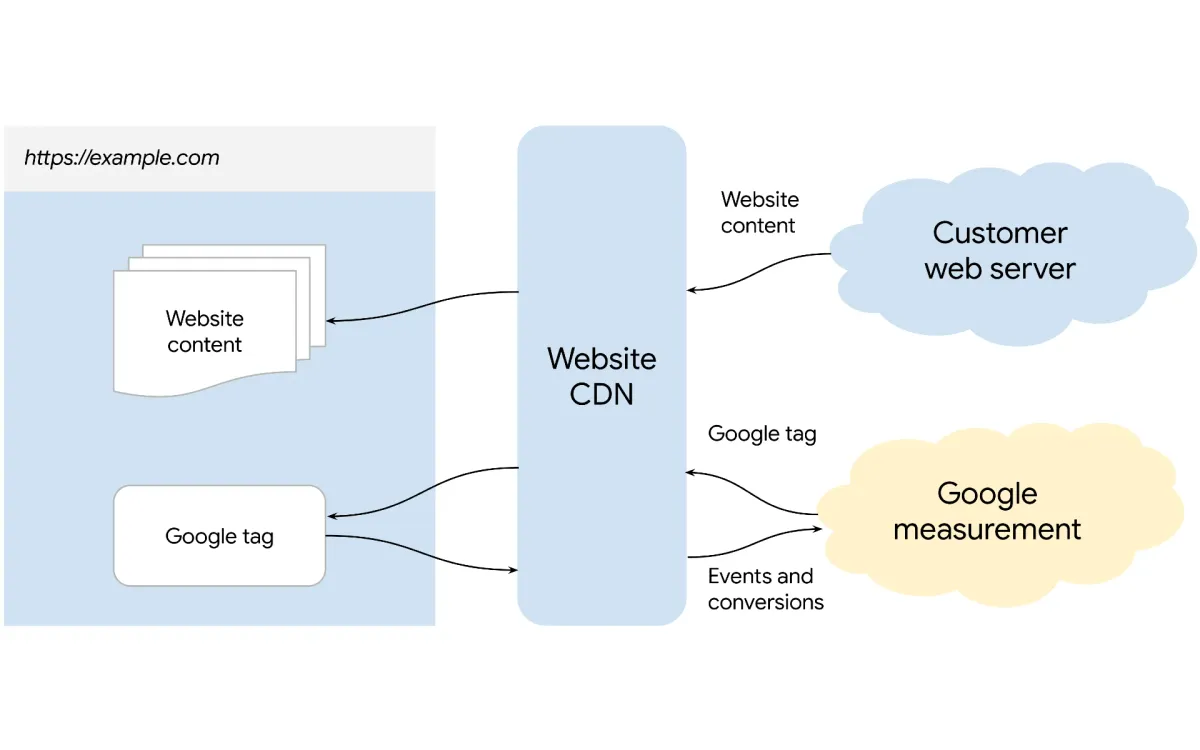
Google this month released the beta First-Party Mode for Google Tag Manager (GTM). This new feature allows website owners to host Google's tag management scripts in their own domain, potentially offering increased data security and privacy controls. However, the move has also raised concerns about its impact on user privacy and potential motives behind it.
Traditionally, GTM relies on scripts hosted by Google domains. These scripts then communicate directly with Google's servers, collecting website usage data. First-Party Mode disrupts this flow. Website owners can now set up a designated path in their own domain to host the GTM scripts. When these scripts fire, they send data to the designated path on the website's domain first. This data is then forwarded to the relevant Google product.
Potential Benefits of First-Party Mode
Enhanced Data Security: By hosting the scripts on their own domain, website owners can potentially implement stricter Content Security Policy (CSP) rules, limiting the data accessible to third parties.
IP Obfuscation: First-Party Mode allows website owners to configure the system to hide a user's IP address before forwarding data to Google. This can be a privacy benefit for users concerned about online tracking.
Improved Measurement Resilience: Google suggests First-Party Mode can help recover lost measurement signals, potentially improving the accuracy of website analytics data.
Concerns and Criticisms
Privacy or Power Grab?: Some experts, like Simo Ahava, a co-founder at Simmer and Partner at 8-bit-sheep, question Google's motives for First-Party Mode. While it offers some privacy benefits, the primary motivation could be to bypass ad blockers, which often restrict scripts from loading from known advertising domains. This raises concerns about prioritizing data collection over user control.
Increased Complexity: Setting up and managing First-Party Mode requires additional technical expertise compared to the standard GTM implementation. This can be a burden for smaller websites without dedicated IT resources.
Uncertain Long-Term Impact: The long-term impact of First-Party Mode on user privacy and data security remains unclear. Some experts worry that website domains hosting these scripts could be flagged as MarTech CDNs by ad blockers in the future, effectively negating the privacy benefits.
Google's release of First-Party Mode signifies a shift in the online data collection landscape. While it offers potential benefits for data security and measurement, concerns regarding user privacy and potential motives remain. As with any new technology, careful consideration and a wait-and-see approach might be prudent for website owners before adopting First-Party Mode.

